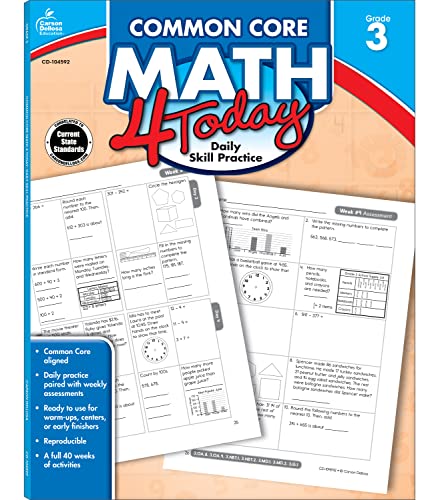Types of numbers
Following is the list of the most commonly used types of numbers in maths with examples:
- Natural
- Whole
- Integers
- Rational
- Irrational
- Real
- Imaginary
- Complex
1. Natural
Any number that matches any of 1, 2, 3, 4, …. and so on is called a natural or counting number.
Natural numbers start from 1.
4, 9 , 11, 35, 99, 500 or 9876
They are commonly used to count and order a group of numbers which further divides them into the two types cardinal and ordinal numbers.
Set of natural numbers is denoted by N.
a) Cardinal
These are used for counting of objects. i.e. how many objects are there 1, 2, 3. etc.
Example 1: There are 7 apples in a box
So, the count of apples in the box is 7, so 7 is the cardinal number.
Example 2: There are 365 days in a year.
The count of days in a year is 365, so 365 is the cardinal number here.
b) Ordinal
These are used to order the positions of objects or in other words they are used to tell the position of an object like 1st, 2nd, 3rd, 4th or 5th … etc.
Example 1: Girls of the class bagged 1st position in the school race.
1st is the ordinal number here.
Example 2: Canada is the 2nd largest country in the world.
2nd is the ordinal number here.
2. Whole
Natural numbers including 0 are called whole numbers.
The only difference between whole and natural numbers is that the whole start from 0 unlike natural which start from 1.
0, 2, 14, 23, 48, 172, 623 or 245
Set of whole numbers is denoted by W.
3. Integers
All natural numbers including their negatives and zero are called Integers.
It includes 0, all negative and positive natural numbers.
That means 1, 2, 3, 4, 5, 6, … so on and -1, -2, -3, -4, -5, -6, … so on and
0 are integers
-65, -12, -5, 0, 56, 89 or 354
Set of integers is denoted by Z.
4. Rational numbers
The numbers which can be expressed in the form of
pq , where p and q are integers and q is
not equal to zero, are called Rational Numbers.
These are non terminating and repeating.
Non terminating numbers never end and are represented with the repeating dots “…………….” at the end.
Repeating numbers repeats the same digits again and again.
Example 1: 25 , 13 , 89 and 310
Example 2:
0.1111………, 0.3333……… and 1.27272727……..
In 0.1111………, 1 is non terminating and repeating
In 0.3333………, 3 is non terminating and repeating
In 1.27272727………, 27 is non terminating and repeating
Set of rational numbers is denoted by Q.
5. Irrational numbers
The numbers which are not rational are called irrational numbers.
Irrational are non terminating and non repeating decimal numbers.
Example 1:
1.10526315789……………. and 1.21052631579…………….
because 1.10526315789……………. and 1.21052631579……………. have non terminating and non repeating
digits after the decimal
Example 2: √2 and √5
Further, irrationals can be classified into transcendental and algebraic numbers.
a) Transcendental
A number that is not the root of a non-zero polynomial with integer as coefficient is called as transcendental number. It is a real or complex number.
π (pi) and e (euler’s number).
b) Algebraic
A number which is root of a non-zero polynomial in one variable with integer as coefficient is called as algebraic number.
√2 is the root of x² – 2.
So,
√2 is an algebraic number.
The golden ratio 1 + √5 2 is an algebraic number as it is a root of x² – x – 1
A transcendental is not an algebraic number.
6. Real
Set of rational and irrational are called Real Numbers.
All real numbers can be represented on a number line which is also called a real line.
√7 , 18 and 310
Set of real numbers is denoted by R.
7. Imaginary
Square root of a negative number is called as imaginary number.
Square root of negative 1 is called the imaginary unit. It is denoted by symbol i. It is
pronounced as
iota.
The value of i, i², i³ and i4 can be calculated as following:
Value of i
√-1
Value of i²
i² = i . i
√-1 .
√-1 = -1
Value of i³
i³ = i² . i
= (-1) . i = -i
Value of i4
i4 = i² . i²
=(-1) . (-1) = 1
The value of i-1 and i-2 are calculated as following:
Value of i-1
i-1 = 1i
= 1i ×
ii
=ii²
i-1 = -i
Value of i-2
i-2 = 1i²
= 1-1 = -1
2i, -5i and √6i
8. Complex
A number which can be expressed in the form of a + ib is called a complex number. In the complex number a + ib, a and b are real numbers and i is an imaginary unit. It has two parts real part and imaginary part. The real part is a and the imaginary part is ib.
3 + 5i and 6 – 7i
Set of complex numbers is denoted by C.
Other than the above types, other more commonly known numbers are even, odd, prime, composite and polygonal. But these are not considered as the types of the numbers.
More types of numbers
Other than the basic types listed above, there are some more different kind of numbers used in maths.
1. Even
Any integer which is multiple of 2 is called an even number.
2, 4, 6, 8, 20 and 42
2. Odd
Any integer which is not multiple of 2 is called an odd number.
1, 3, 7, 9, 11, 13 and 15
3. Prime
A positive integer which is divisible by itself and 1 only is called a prime number.
2, 3, 5, 7, 11, 13 and 17
4. Composite
Any number which can be expressed as product of smaller positive integers is called a composite number.
4, 28, 102, 112 and 700
5. Polygonal
The numbers which can be expressed as dots and can be arranged in the shape of regular polygon are called
polygonal numbers.
These are further classified into the following types:
-
Triangular numbers
1, 3, 6, 10, 15, 21, 28, 36, 45, 55 and so on -
Square numbers
1, 4, 9, 16, 25, 36, 49, 64, 81, 100 and so on -
Pentagonal numbers
1, 5, 12, 22, 35, 51 and so on -
Hexagonal numbers
1, 6, 15, 28, 45, 66, 91, 120, 153, 190 and so on -
Heptagonal numbers
0, 1, 7, 18, 34, 55, 81, 112, 148, 189 and so on -
Octagonal numbers
1, 8, 21, 40, 65 and so on -
Nonagonal numbers
0, 1, 9, 24, 46, 75, 111, 154, 204, 261 and so on -
Decagonal numbers
0, 1, 9, 24, 46, 75 and so on -
Hexadecagonal numbers
1, 7, 19, 37, 61, 91, 127, 169, 217, 271 and so on -
Dodecagonal numbers
0, 1, 12, 33, 64, 105 and so on
What is additive inverse of a number?
If a positive number and its corresponding negative number are added up, their sum results to 0.
The negative numbers are the additive inverse of the positive corresponding numbers.
2 is the additive inverse of -2.
Because -2 + 2 = 0.
Zero is neither a negative number nor positive number. It is a neutral number.
Frequently Asked Questions
1) What is the difference between cardinal and ordinal numbers?
Cardinal are used to count the objects whereas ordinal are used to tell the position of an object.
2) What is the difference between rational and irrational numbers?
Rationals are non terminating repeating numbers whereas irrationals are non terminating non repeating numbers.
3) Is zero a rational number?
Yes, zero is a rational number because it is written as 01
Fill in Blanks Worksheet
| Type: | Blanks |
| Count: | 1 |
- The numbers that start with 0, 1, 2 are called ___________ numbers.
- The first natural number is ___________.
- Rational and irrational numbers taken together are called ___________ numbers.
- The rational numbers are non terminating and ___________ numbers.
- π is an ___________ number.
- In rational number pq , q must not be equal to ___________.
- The additive inverse of 7 is ___________.
- Zero is a ___________ number.
- All positive numbers and negative numbers together are called ___________.
- Ordinal numbers are used to tell the ___________ of an object.
Multiple Choice Questions Worksheet
| Type: | MCQ |
| Count: | 1 |
- 2
- 1
- 0
- 3
- 0
- 1
- 2
- 3
- 1
- 2
- 3
- 0
- non terminating number
- non repeating number
- non terminating repeating number
- non terminating non repeating number
- rational number
- non repeating number
- non terminating non repeating number
- irrational number
- positive numbers
- negative numbers
- zero
- all of the above
- rational number
- irrational number
- negative number
- neutral number
- ∞
- 2
- 0
- 1
- -9
- 9
- 0
- 1
- rational number
- irrational number
- repeating number
- non terminating number


























